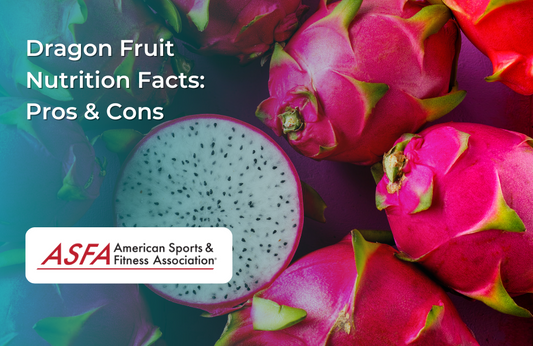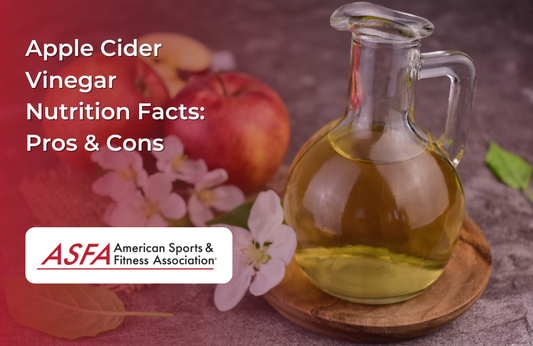Coconut is a versatile tropical fruit that provides healthy fats, fiber, and essential minerals. It is used in various forms, including raw coconut meat, coconut water, coconut milk, and coconut oil. While it offers several health benefits, its high saturated fat content and calorie density should be considered.
Coconut Nutrition Facts Pros Cons: Per One Cup, Raw Coconut Meat
-
Calories: 283
-
Protein: 3g
-
Carbohydrates: 12g
-
Fiber: 7g
-
Sugar: 5g
-
Fat: 27g
-
Saturated Fat: 24g
-
Iron: 2.0mg
-
Magnesium: 26mg
-
Potassium: 285mg
Dried coconut meat is also a nutritious option, offering similar health benefits while being versatile in various dishes. Choosing unsweetened or raw dried coconut meat can help reduce sugar intake. Canned coconut milk, available in sweetened and unsweetened varieties, is another popular option. It is important to check the nutritional profile on labels and opt for BPA-free cans to avoid health concerns related to its high saturated fat content.
What is Coconut Meat?
Coconut meat, also known as coconut flesh, is the white, fleshy interior of a mature coconut. This nutrient-dense part of the coconut is packed with protein, fiber, and healthy fats, making it a valuable addition to any diet. Whether you enjoy it raw, dried, or processed into products like coconut milk, coconut oil, or coconut cream, coconut meat is incredibly versatile. It can be used in a variety of sweet and savory dishes, from tropical smoothies and desserts to curries and salads. For those following a paleo or vegan diet, coconut meat is a popular choice due to its rich nutritional profile and adaptability in recipes. Thin coconut milk is a processed alternative to thick coconut milk, made by mixing the squeezed flesh of mature coconuts with water, and is often used as a substitute for cow's milk.
Macronutrients
Coconut meat is a powerhouse of macronutrients, offering a balanced mix of protein, fiber, and fats. Each ounce of coconut meat provides approximately 3-4 grams of protein, 2-3 grams of fiber, and 10-12 grams of fat, most of which are saturated fats. One of the standout features of coconut meat is its content of medium-chain triglycerides (MCTs), a type of saturated fat known for its health benefits. MCTs are easily digestible and can provide a quick source of energy, making coconut meat a great option for those looking to boost their metabolism and support brain function.
Pros of Coconut
Rich in Healthy Fats
-
Contains coconut fat, which includes medium-chain triglycerides (MCTs) that are easily digestible and provide a quick energy source. The saturated fats in coconut fat, such as lauric and myristic acids, can influence cholesterol levels, and while they may support brain function and metabolism when consumed in moderation, further research is needed to fully understand their overall health impacts.
High in Fiber
-
Promotes digestion and gut health
-
Helps regulate blood sugar by slowing carbohydrate absorption
Provides Essential Minerals
-
Good source of potassium, which helps regulate blood pressure
-
Contains magnesium and iron, which support muscle function and oxygen transport
Naturally Low in Sugar
-
Contains natural sugars but has a lower glycemic impact than refined sugars
-
Can be a satisfying alternative to processed sweets
Versatile and Available in Many Forms
-
Can be eaten raw, shredded, or blended into milk, oil, or flour. Shredded coconut is high in fiber and calorie-dense, making it a nutritious addition to your diet.
-
Works well in both sweet and savory dishes
Cons of Coconut
High in Saturated Fat
-
Contains a significant amount of saturated fat, which may impact heart health if consumed excessively. Studies have shown that while coconut products are high in saturated fats, olive oil, particularly extra virgin olive oil, is rich in unsaturated fats that can positively affect cholesterol levels and heart health.
-
Virgin coconut oil, produced using fresh coconut meat, contains antioxidants that may mitigate the negative effects of saturated fats and offer potential health benefits
-
Should be balanced with other unsaturated fat sources
Calorie-Dense
-
High in calories, which may contribute to weight gain if not consumed in moderation
-
Portion control is important for those managing calorie intake
-
Opt for unsweetened coconut milk to reduce added sugar intake, as it has a lower sugar content compared to sweetened alternatives
Can Be Difficult to Digest for Some Individuals
-
High fiber content may cause bloating or digestive discomfort in sensitive individuals
-
Unsweetened shredded coconut is a key ingredient for making fresh coconut milk, which is lower in added sugars and artificial ingredients.
-
Drinking plenty of water and eating smaller portions can help reduce discomfort
How to Use Coconut Meat
Culinary Uses
-
Baking: Shredded coconut can be used as a topping for baked goods, such as muffins, cakes, and cookies. It adds a delightful crunch and a hint of tropical flavor that can elevate any dessert.
-
Savory dishes: Coconut meat can be used in savory dishes, such as curries, stews, and soups, to add flavor and texture. Its rich, creamy consistency pairs well with spices and herbs, making it a staple in many Asian and Caribbean cuisines.
-
Desserts: Coconut cream can be used to make delicious desserts, such as coconut cream pie, coconut macaroons, and coconut ice cream. Its natural sweetness and creamy texture make it a perfect ingredient for indulgent treats.
-
Smoothies: Coconut milk can be used as a base for smoothies, adding a creamy texture and a hint of coconut flavor. It blends well with fruits and vegetables, making your smoothies more nutritious and satisfying.
-
Snacks: Dried coconut meat can be used as a healthy snack, either on its own or as a topping for oatmeal or yogurt. It’s a convenient way to enjoy the health benefits of coconut on the go.
Incorporating into Daily Diet
-
Start with small amounts: If you’re new to using coconut meat, start with small amounts and gradually increase your consumption as you become accustomed to its flavor and texture. This can help you avoid any digestive discomfort.
-
Choose unsweetened options: Opt for unsweetened coconut milk, coconut cream, and shredded coconut to avoid added sugars. This ensures you get the natural goodness of coconut without the extra calories from sugar.
-
Use in place of dairy: Coconut milk and coconut cream can be used as a substitute for dairy products in many recipes. They are excellent alternatives for those who are lactose intolerant or following a vegan diet.
-
Add to oatmeal or yogurt: Sprinkle shredded coconut on top of oatmeal or yogurt for a nutritious and filling breakfast. It adds texture and a boost of healthy fats to your morning meal.
-
Make your own coconut oil: You can make your own coconut oil by extracting the oil from dried coconut meat. This can be used for cooking, skin care, and hair care, providing a natural and versatile product for your household.
Remember to always choose high-quality coconut products, such as virgin coconut oil and unsweetened coconut milk, to reap the most health benefits.
Comparison to Coconut Milk and Coconut Oil
Coconut meat, coconut milk, and coconut oil all originate from the same fruit but offer different nutritional benefits and uses. Coconut milk, made by blending coconut meat with water, is rich in saturated fat and calories, making it a creamy dairy substitute in many recipes. It’s a favorite among those following paleo or vegan diets. Coconut oil, extracted from the meat, is a concentrated source of saturated fat and is often used in cooking, especially in ketogenic and low-carb diets.
In contrast, coconut meat is the raw material from which both coconut milk and coconut oil are derived. It is lower in saturated fat and calories compared to coconut milk and oil but higher in fiber and protein. For instance, an ounce of coconut meat contains 10-12 grams of fat, 3-4 grams of protein, and 2-3 grams of fiber. Meanwhile, a cup of coconut milk has 20-25 grams of fat, 1-2 grams of protein, and minimal fiber, and coconut oil is purely fat with no protein or fiber.
Overall, coconut meat is a nutritious and versatile food that can be enjoyed in various forms, from snacking to cooking. While it is high in saturated fat, it also provides essential nutrients like fiber, protein, and medium-chain triglycerides, making it a popular choice for those seeking a balanced and healthful diet.
Conclusion
Coconut is a nutrient-dense fruit that provides healthy fats, fiber, and essential minerals, making it a great choice for energy, digestion, and overall health. However, its high saturated fat and calorie content mean that it should be consumed in moderation and balanced with other healthy fat sources. Choosing natural, unsweetened coconut products ensures the best nutritional benefits.
FAQs
Is coconut good for weight loss?
Coconut provides healthy fats that promote satiety, but portion control is important due to its high calorie content.
Can coconut improve digestion?
Yes, its fiber content supports gut health, but excessive intake may cause bloating in some individuals.
Is coconut oil good for heart health?
Coconut contains saturated fat, which should be balanced with unsaturated fats from other sources to support heart health.
How can I include coconut in a healthy diet?
Coconut can be used in moderation in smoothies, baked goods, curries, and as a topping for yogurt or oatmeal.
What’s the difference between coconut meat and coconut water?
Coconut meat is high in fat and fiber, while coconut water is low in calories and mainly provides electrolytes like potassium.





